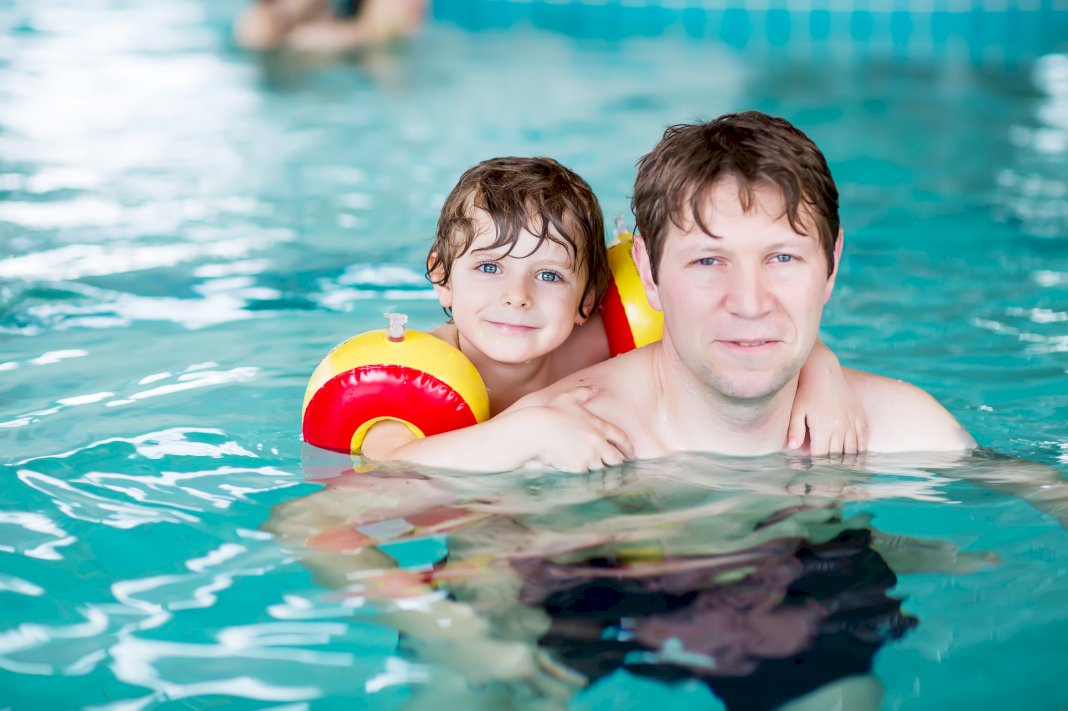Developing a close bond with their fathers has numerous benefits for children. A strong father-child relationship can foster a sense of security and improve a child’s emotional well-being. It also contributes significantly to the child’s cognitive development and academic achievement. For example, a U.S. Department of Education study found that children with an involved father are 43% more likely to earn A grades in school. Furthermore, children with supportive fathers have been shown to have higher self-esteem, less depression, and lower delinquency rates than their peers with less involved fathers.
As a dad, you might want to develop a better connection with your children, but you might not know how to do it. Here are a few tips to help you strengthen your relationship with your child:
Quality Time

Spending quality time with your child is not just about being physically present but about being emotionally invested as well. When you actively listen, react, and engage in their interests, you show them that their thoughts and feelings matter to you. This fosters an environment of trust, enabling your child to feel more secure in sharing their emotions and experiences with you.
Shared Interests
Finding common ground in interests provides a beautiful opportunity to bond. For instance, board games and card games offer more than just fun. They teach patience, strategy, and fair play and provide opportunities for conversation and shared excitement. Playing these games together can create lasting memories and traditions that form the cornerstone of a solid father-child relationship.
Learning Opportunities
Quality time also offers valuable learning experiences. Whether teaching them a new game, helping with homework, or working together on a DIY project, these moments allow you to impart knowledge and skills. They provide a setting for your child to learn from you and for you to learn about your child.
Emotional Support
By spending quality time together, you become better attuned to your child’s emotional needs. If they’re struggling with something, they’re more likely to confide in you if they feel a strong connection. Emotional support demonstrates your commitment and love, further strengthening your bond.
Showing Up
Of course, dads often have busy schedules and competing priorities, making it challenging to find dedicated time. However, trying to show up for important events in your child’s life – whether it’s a school play, sports game, or even just dinner together – can go a long way in building connection and trust. Your presence shows that you care about your child and value their interests.
Communication
Good communication forms the backbone of a solid father-child relationship. It fosters an environment of trust and understanding, providing a safe space for your child to express their thoughts, feelings, and concerns.
As a father, communication allows you to gain insight into your child’s world, to understand their perspectives, and to guide them through challenges. It’s not just about talking but also about listening – truly hearing what your child is saying, validating their feelings, and responding empathetically.
Regular open conversations can help dispel misunderstandings and confusion, building a deeper and more meaningful connection. Moreover, by demonstrating effective communication, you also set a positive example, teaching your child crucial life skills such as expressing themselves respectfully and listening to others. Not to forget, communication adds joy to your relationship, paving the way for shared laughter, stories, and a mutual understanding that will last a lifetime.
Proper Discipline Strategies

Discipline is integral to the relationship between a father and his children. It plays a crucial role in a child’s overall development, teaching them right from wrong, setting boundaries, and fostering a sense of responsibility. Moreover, how a father disciplines his children can significantly impact their emotional well-being and the trust they place in their father.
Effective discipline isn’t about punishment or control. Instead, it’s about guidance and teaching. It’s crucial for you, as a father, to set clear and reasonable expectations and to communicate these calmly and consistently. Using disciplinary strategies such as time-outs, natural consequences, or privilege removal can be effective when used judiciously. But remember, discipline should consistently be implemented with love and respect and never out of anger.
Furthermore, it’s critical to balance discipline with positive reinforcement. Praise your child when they exhibit good behavior or make good choices. This strengthens your bond and motivates your child to continue behaving well.
Remember, the goal of discipline isn’t to instill fear but to guide your child toward becoming a responsible, empathetic, and respectful individual. Demonstrating patience, understanding, and respect during disciplinary moments can significantly enhance your connection with your child, building a loving relationship based on mutual respect and trust.
Final Thoughts
Being a father comes with immense responsibility but also tremendous joy. By actively investing in your relationship with your child, you’re fostering their emotional and cognitive development and creating cherished memories that will last a lifetime.
For more valuable information visit our website.





